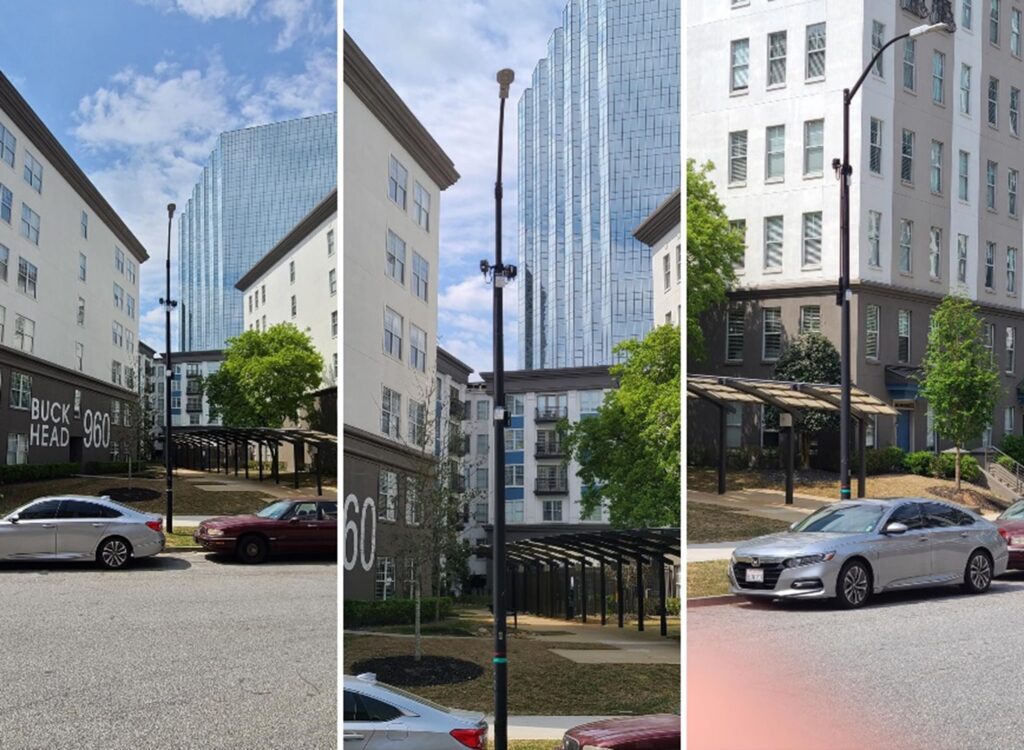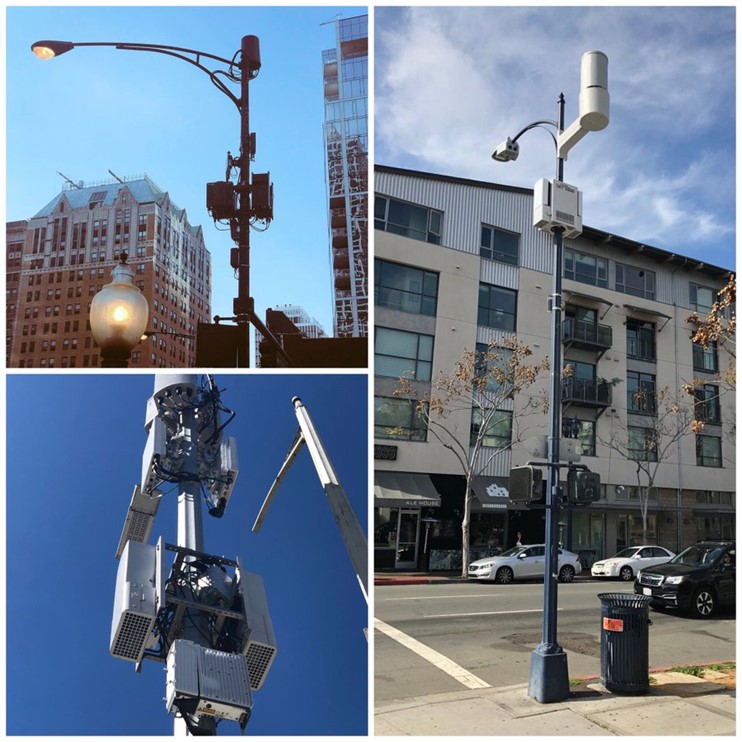Turnkey Lights the Way
By Melroy Machado, Director of Operations, Pivotal Turnkey

Pivotal Turnkey is an end-to-end solution for planning and deploying a fixed wireless access (FWA) mmWave overlay on a mobile network. Mobile Network Operators (MNOs) rely on Pivotal Turnkey to expand and direct mmWave coverage from typically underutilized small gNBs to nearby, qualified multiple dwelling units (MDUs) and single-family homes. The Pivotal overlay uses Pivot 5G® repeaters to direct mmWave signals around obstacles, expanding mmWave coverage beyond gNB line-of-sight. Pivots are now appearing on standalone street lights (Figure 1).
This is significant because standalone street lights, as opposed to street lights attached to utility or traffic poles, are perfect for mmWave networks because they’re located closer to where people live and work. Their height, about 30 feet, and spacing, typically 165 feet apart, are ideal. The US’s 26 million street lights have reliable electricity, too.
For mounting gNBs small cells, however, most streetlights have two major drawbacks: a) no fiber connection, and b) inadequate structural support. This is why most gNBs are mounted on heartier "smart poles", paid for by the MNO, to handle a gNB’s size, weight, and power consumption. What’s more, new poles and fiber require between 12 to 18 months to acquire sites, engineer designs, secure permits and install gear. At this rate, US MNOs’ objective of deploying 800,000 small cell sites will take much longer than the years it took deploying 200,000 macro cell sites.

Another gNB deployment headwind, particularly as small cells migrate from 50-foot utility poles to 30-foot street lights, is public resistance to their appearance. While it’s true that today’s smart poles and small cell attachments have never looked better, the public has at times seen a different form of art (Figure 2).
MNOs realize that mmWave gNBs on every street light or utility pole is a non-starter. This is why MNOs are deploying Pivot 5G repeaters, whose lower C-SWaP (cost, size, weight, and power consumption) and absence of fiber has convinced street light owners to regulate them as IoT devices instead of small cells. As a result, Pivots require about three months to secure permits.
MNOs also know that gaining their fair share of the $100 billion broadband market using limited sub-6 GHz spectrum is not sustainable, particularly among data hungry MDUs where one third of Americans live. That’s why the latest FWA customer premise equipment (CPE) is mmWave-ready. Meanwhile, MNOs are mounting Pivots on street lights to probe for demand worthy of gNB capacity. Only when that demand materializes will MNOs selectively replace a Pivot with a gNB.
Gradually, MNOs are learning to appreciate mmWave propagation. That is, delivering mmWave signals via highly directive spatial corridors to individual buildings — individual windows, in fact — instead of broad geographies. With a Pivot 5G repeater overlay, MNO service costs and revenue move in tandem. The days of build-it-and -they-will-come are over.

